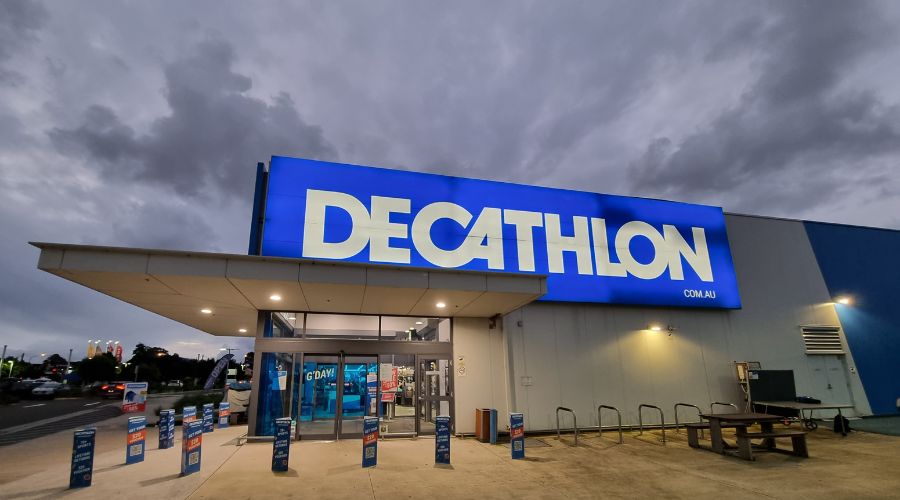The largest athletic goods retailer in the world is Decathlon, a French company with more than 2,082 locations in 79 countries.
Sports equipment ranging from tennis rackets to scuba diving gear is readily available. Decathlon sells its goods under almost 20 different names.
Decathlon manages the in-house product design, production, shipping, distribution, and market research. Additionally, it collaborates with international suppliers and uses large branded box stores to market its brands to consumers.
Product Brands:
Decathlon is a vertically integrated retailer that designs, develops, and markets its products under over 85 brands. The following brands are category specialists:
- BTwin: Urban Gliding and Mobility
- Caperlan: Wildlife
- Domyos: Fitness
- Inesis: Target
- Kipsta: Team Sports
- Kuikma: Racket
- Nabaiji: Swimming
- Quechua: Mountain
- Rockrider: Outdoor Cycling
- Tribord: Water and wind.
Economic Review:

The success of Decathlon contributed greatly to the decline of independent retailers in France. In 2008 the company beat its competitors on three platforms: margin, market share, and high turnover per square meter of retail space. A 2008 survey of 774 catchment areas at the request of the Ministry of Economy and Finance shows that “for sporting goods, Decathlon is dominant in 92.8% of zones.” This dominant position has the effect of marginalizing its commercial competitors, including independent retailers.
Competitors:
François Neukirsh, Managing Director of Go Sport, stated in the publication Les Échos that the goal of the 2009 partnership between Decathlon’s sector rivals, Go Sport [fr] and Sport 2000 [fr], was to “pressurize most of the major international suppliers” by establishing a unified purchasing center in Switzerland. Due to its niche target market in mass-market retail, the company faces little competition otherwise. Another significant rival, mostly in the European market, is Intersport. To encourage reverse shopping, Decathlon rebranded itself as Nolhtaced in Belgium for a month.
Social Standards:
Regarding human rights, health and safety, environmental stewardship, corruption, and management and communication, Decathlon has been adhering to the Social and Environmental Responsibility World Forum’s social charter since 2003.
However, Decathlon has refused to reveal the identities of its suppliers and has come under fire following allegations that its suppliers in Sri Lanka’s free trade zones are breaking labor regulations in the nation.
For more sporting updates, don’t forget to visit www.thepennywize.com
FAQs:
Q1. Who is Decathlon’s owner?
Michel Leclercq is a French billionaire entrepreneur who was born in 1938. He founded Decathlon and owns 40% of the company. It is the biggest athletic goods retailer in the world, with more than 1647 locations in 57 countries and regions as of January 2020.
Q2. Is Decathlon a reputable company?
Among the biggest sellers of sporting products worldwide is Decathlon. With a distinctive business strategy that maintains excellent product quality while taking a smaller product margin, it is working to ensure that sports are accessible to everyone. In order to respond to your inquiry, are Decathlon items good? The response is in the affirmative!
Q3. Is Decathlon a high-end company?
With more than 1,700 locations worldwide, Decathlon is the biggest athletic goods shop in the world. We can provide high-performing products without charging premium prices thanks to our vertical business model, which includes internal production, supply chain management, and research and development facilities.


